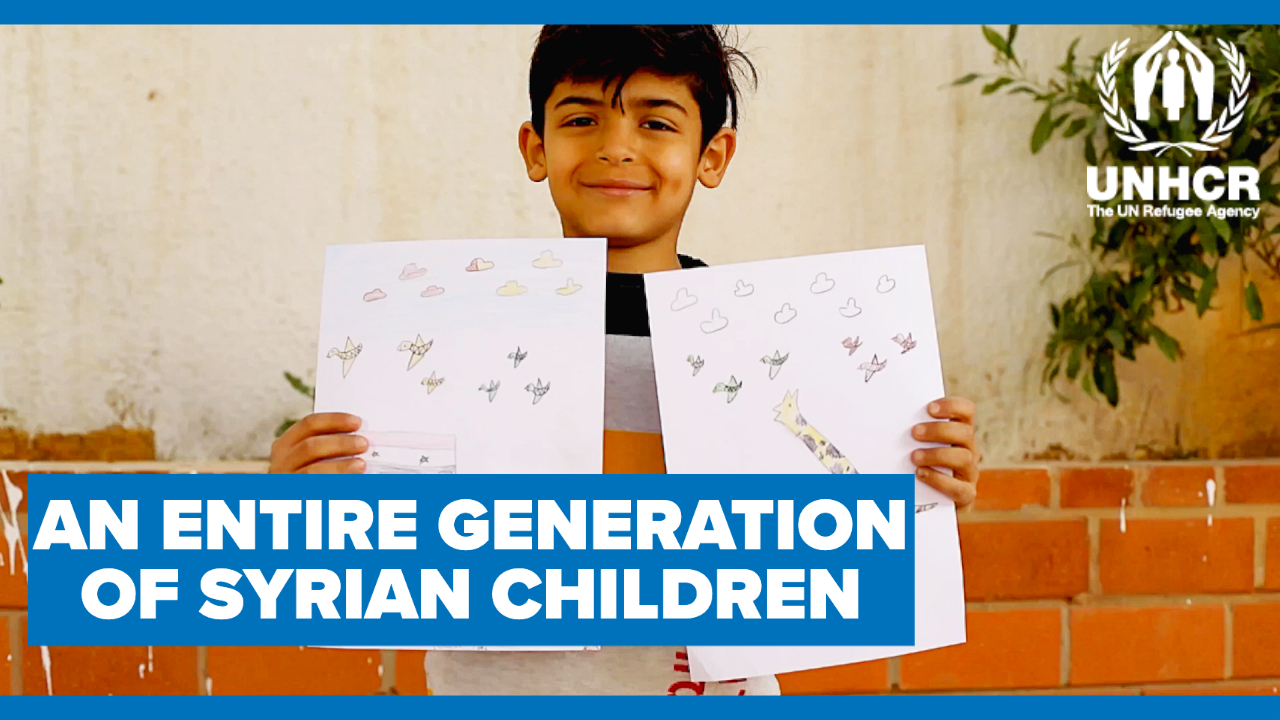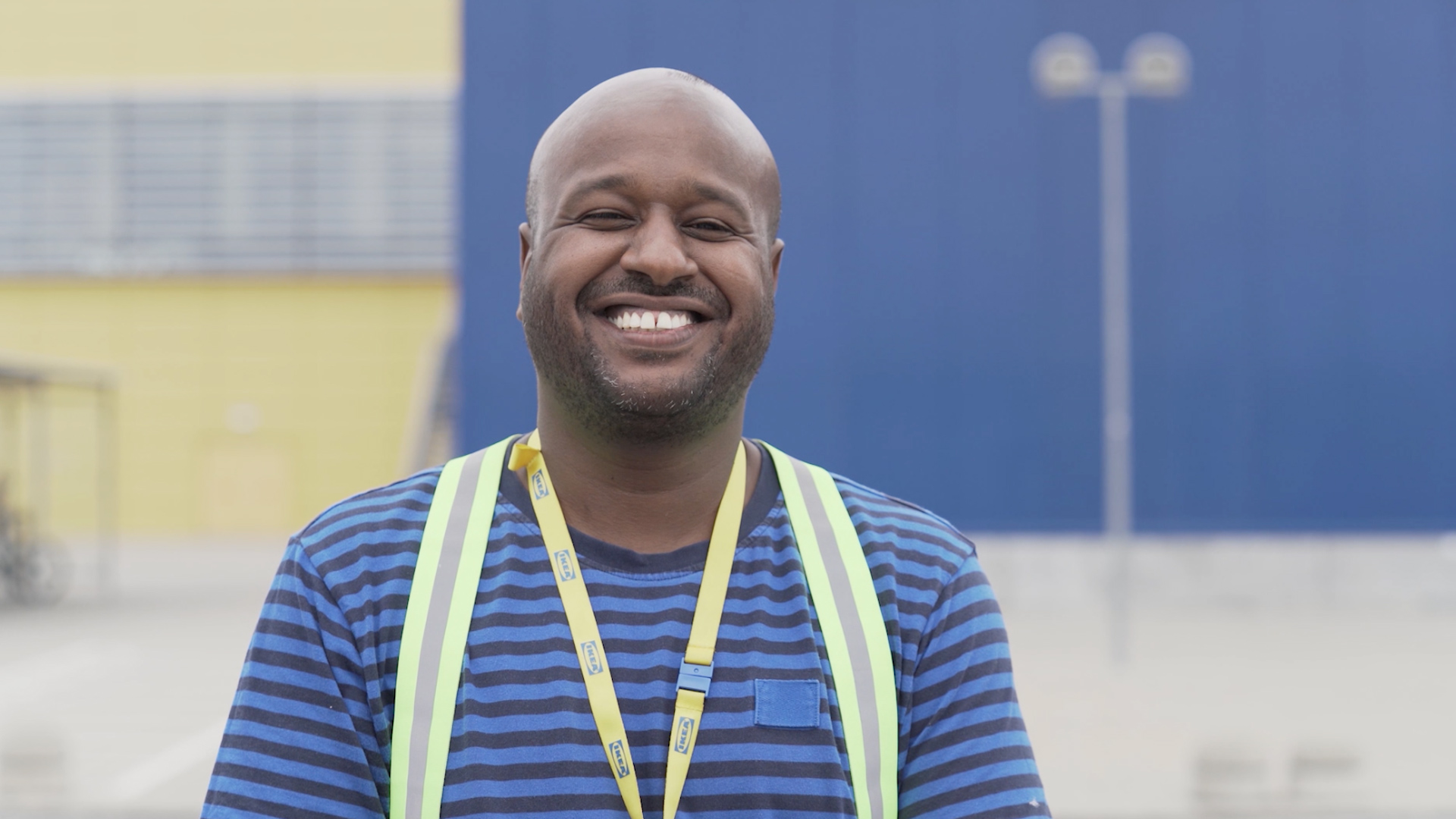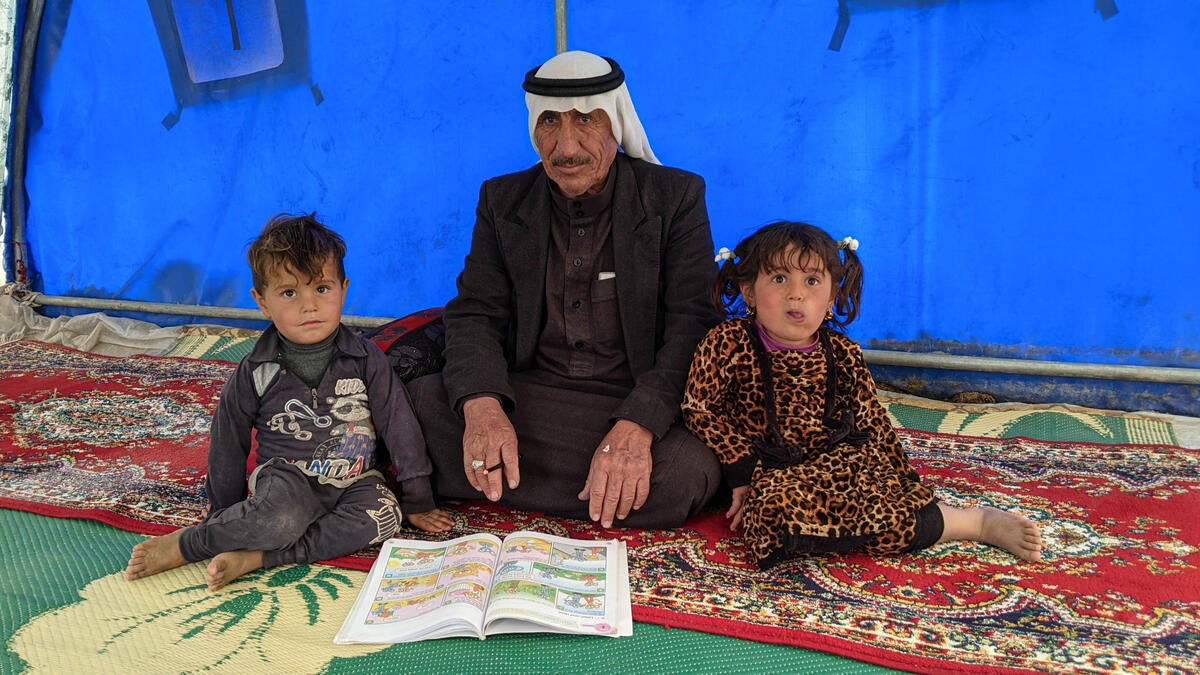UN Humanitarian Briefing on Iraq
UN Humanitarian Briefing on Iraq
UNHCR team in southern Iraq
UN refugee agency staff are in southern Iraq today as part of an inter-agency team visiting Basra. This follows a similar mission on Saturday when our staff travelled, met with delegates from the International Committee of the Red Cross (ICRC) based in Basra, and also looked into possible future office premises.
Delegates from the ICRC are travelling up to Al Amarah today. We have asked them to try to gather information during their mission in the east on some of the more than 5,000 Iranian refugees who are settled along the road between Al Amarah and Al Kut, in the vicinity of Al Kumait, Ali Al Gharbi and Dujaila.
Over the next few days, UNHCR is sending ten additional staff to Kuwait from where they will be posted to southern Iraq, where we plan to increase our presence and to ourselves look into the condition of some of the thousands of refugees living in the area. Our staff plan to begin over-nighting in Basra from the middle of this week. This will be the first time we will have had a full-time presence in Basra. As there are many refugees living in this region of Iraq, and other Iraqi refugees from the area living in Iran and Saudi Arabia, this planned office will provide an important antenna for our work as we monitor the internal situation and prepare the repatriation of Iraqi refugees.
Refugees in Jordan
High winds and a driving sandstorm buffeted the frontier on Friday, damaging 30 tents at our camp at Ruwaished and 20 other camps at the no man's land encampment at Al Karama. Fortunately, aside from a number of people complaining of respiratory problems, no one was injured during the storm.
More than 560 people are currently in the UNHCR/Jordanian Hashemite Charity Organisation (JHCO) camp at Ruwaished, all of them Palestinians, some with various family ties to Jordan.
At the makeshift encampment in no man's land separating Jordan from Iraq, there are currently some 40 Iraqis, some of whom have been blocked at the border for more than three weeks. Despite an understanding with the government that they would be permitted to enter Jordan, this group is still blocked at the frontier.
The vast majority of the people in no man's land - more than 900 - are Iranians. This group includes more than 870 ethnic Kurds from the refugee camp at Al Tash, and about 35 other Iranians.
One Jordanian media outlet published a story today reporting that many residents of Iraq were coming to Jordan, and that UNHCR had asked the government to shelter them for seven months. No one at UNHCR spoke with the reporter about this issue, nor have we made any such request to the government.
UNHCR's long-standing policy on the issue of people fleeing Iraq is that all governments should respect the right of people to seek asylum. Iraqis should initially have temporary protection to stay in asylum countries for three months due to the war and insecurity in their homeland.
Iraqis seeking to return, and UNHCR's preliminary repatriation and reintegration plan
More than 300 of the some 5,200 long-time Iraqi refugees in Saudi Arabia's Rafha refugee camp have indicated that they want to return to their homeland, possibly as early as this week.
Obviously, return and reintegration will be among the major challenges in post-conflict Iraq. Along with the rapid changes that are now taking place in Iraq, UNHCR is shifting its primary focus from contingency preparations for a possible refugee influx into neighbouring states to laying the groundwork for the eventual return of hundreds of thousands of Iraqi refugees. As part of that process, we have developed a preliminary repatriation and reintegration plan for up to 500,000 Iraqi refugees, out of an estimated 900,000 now in the immediate region and beyond.
So when the political climate is right and we see an environment that's conducive to voluntary return - and I should emphasise that we're a long way from that right now - UNHCR wants to be ready. At the same time, we still need to be prepared for any possible outflow from Iraq, where continuing insecurity and religious and ethnic tensions are still resulting in new displacement and driving some people to flee towards neighbouring states. Thus, we will for the time being maintain our current levels of readiness in neighbouring countries. So far, we have committed less than $30 million to those preparations, primarily stockpiles and equipment that can eventually be used inside Iraq or elsewhere, as needed.
The budget for the preliminary repatriation and reintegration plan is $118 million over eight months, which means we're still basically working within the levels of our existing Iraq emergency budget of $154 million. You may recall that it had been designed to cover the possible needs of up to 600,000 refugees for six months. Our repatriation and reintegration work will be part of the overall UN humanitarian effort in Iraq under the UN Humanitarian Coordinator, with whom we'll maintain close co-ordination.
The preliminary repatriation and reintegration plan covers such sectors as shelter ($20 million); domestic needs ($18 million); protection, legal assistance and monitoring ($16.8 million); and transport and logistics for returnees ($15 million). It contains planning figures for numbers of possible returnees; identifies the benchmarks that need to be in place before organised returns begin; describes potential obstacles; and defines UNHCR's role under its international mandate to provide solutions for refugees.
Our planning figure of 500,000 possible returnees is based on several groups. Of the 212,000 Iraqi refugees living in neighbouring countries, mainly Iran (where there are 202,000), UNHCR estimates approximately 165,000 could eventually return home. Another 183,000 Iraqis live in industrialised countries, where most of them are well integrated and might be reluctant to go back to Iraq at this stage. Nevertheless, the UNHCR plan provides support for the possible return of about 35,000 of them. There are also some 84,000 Iraqi asylum seekers in various countries, and the plan assumes about three-quarters of them - about 60,000 - will repatriate. Finally, there are approximately 450,000 Iraqis in refugee-like situations - mostly in Jordan and Syria - and our planning figure has 50 to 60 percent of them (or about 240,000) going home.
While there will undoubtedly be people returning before stability and security are in place, UNHCR will only support return when some basic principles are met. These benchmarks include the ability to provide for the physical, material and legal safety and well-being of the returnees. Their physical safety must be assured by the authorities in Iraq, and includes an end to violence and insecurity and the establishment of operational law enforcement institutions. Material safety includes access to means of survival and basic services in the early phases of return - things like potable water, food and health services. Over the longer term, we need to see measures in place to ensure sustainable reintegration. Legal safety includes redress for human rights violations, non-discrimination and unhindered access to justice.
We would also want to ensure the voluntariness of returns in a safe and dignified manner; to be able to meet the special protection needs of vulnerable persons; and to ensure that UNHCR has unhindered access to returnees at all stages of the return process.
Under our preliminary repatriation and reintegration plan, UNHCR's work in Iraq would focus largely on its traditional protection and legal activities. Although it does not address the needs of internally displaced people, our experience in places like the Balkans teaches us that in situations of post-war recovery in ethnically diverse areas, many of the problems faced by returning refugees are also shared by IDPs. These range from extremely complicated property issues to the physical and legal protection of particularly vulnerable groups. In such cases, UNHCR has provided protection and assistance to both groups and could do the same in Iraq, where many refugees and internally displaced people originate from the same areas, were forced out of their homes for similar reasons and are likely to face similar problems upon return.
Finally, just a reminder that UNHCR is still asking governments to temporarily halt any forced returns of rejected Iraqi asylum seekers and provide appropriate complementary forms of protection to Iraqis in the interim. We're already preparing for repatriation, but as I mentioned, there's still a long way to go before the necessary conditions are in place.








